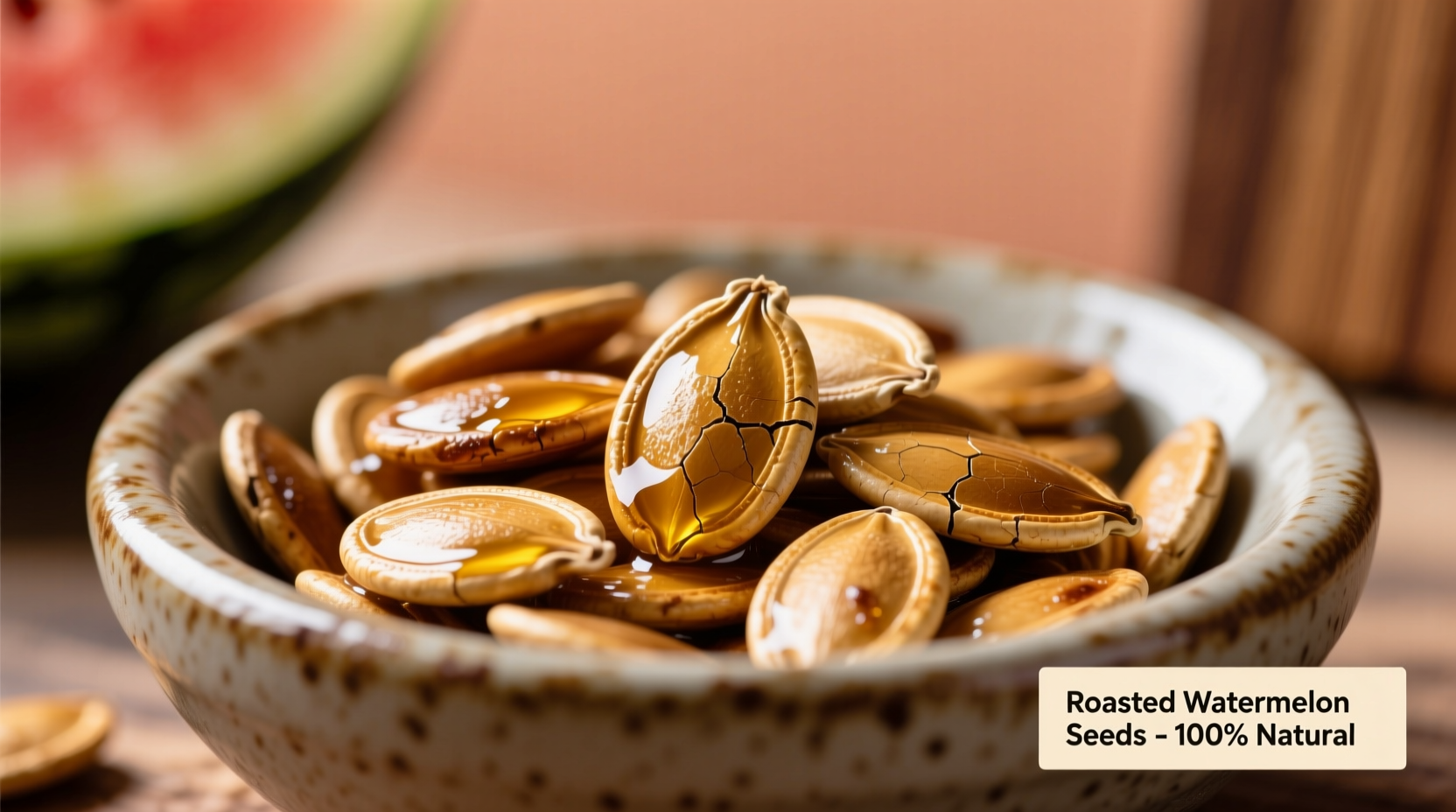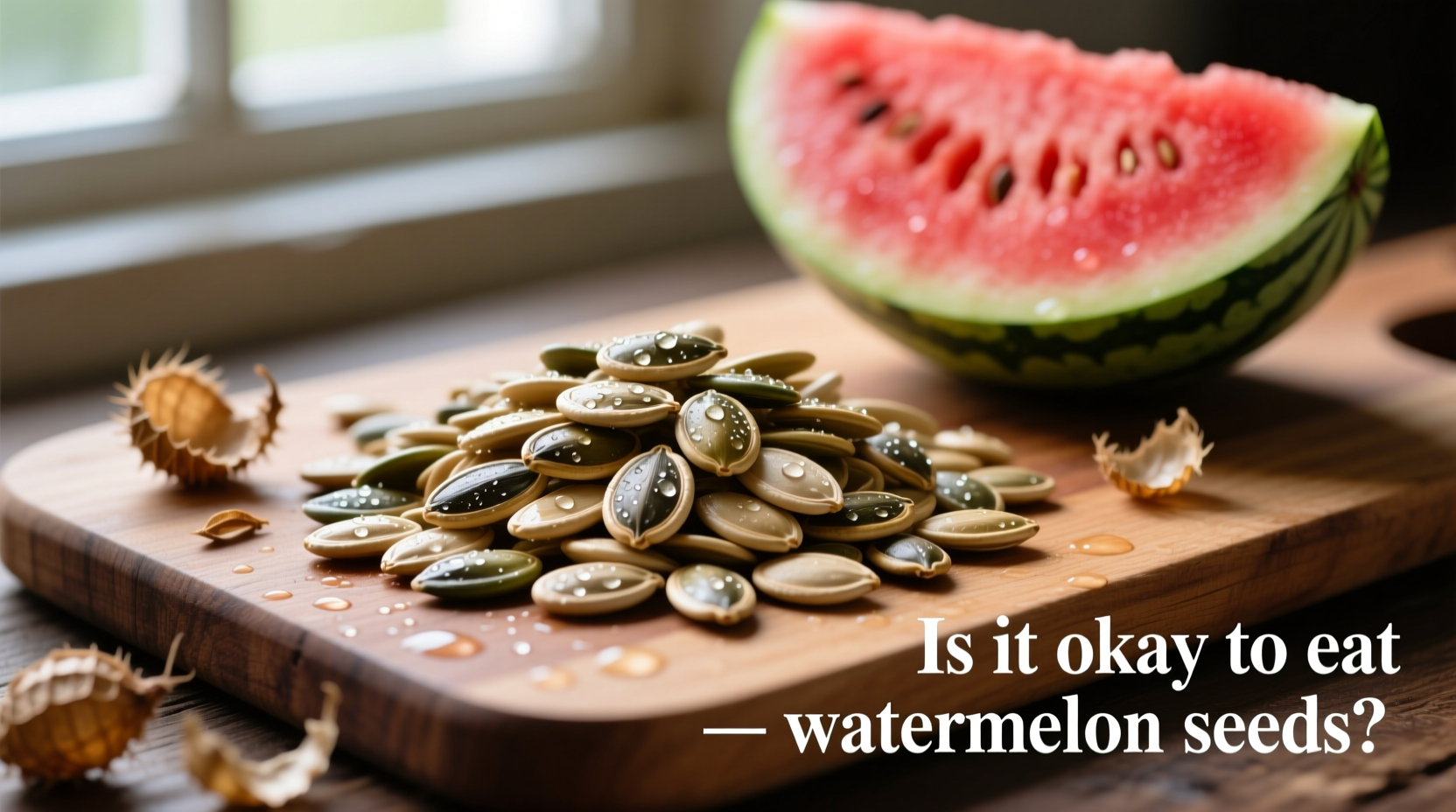Many of us grew up hearing warnings about accidentally swallowing watermelon seeds. The childhood myth that these seeds would sprout inside your stomach has caused unnecessary anxiety for generations. Let's separate fact from fiction and explore the real story behind watermelon seeds.
Debunking the Watermelon Seed Myth
That persistent childhood warning about seeds growing in your stomach? Completely false. Your digestive system breaks down watermelon seeds just like any other food. The acidic environment in your stomach prevents any possibility of germination. According to research published in the Journal of Food Science, watermelon seeds pass through the digestive tract intact but undigested, exiting your body within a few days without causing any issues.
Nutritional Powerhouse in Disguise
Watermelon seeds aren't just harmless—they're actually nutritious. Both black (mature) and white (immature) seeds contain valuable nutrients, though their composition varies slightly. The USDA FoodData Central database confirms that per 100g serving, watermelon seeds provide:
| Nutrient | Raw Watermelon Seeds | Roasted Watermelon Seeds |
|---|---|---|
| Calories | 557 kcal | 569 kcal |
| Protein | 28.3g | 29.8g |
| Healthy Fats | 47.4g | 48.2g |
| Magnesium | 515mg (122% DV) | 520mg (123% DV) |
| Iron | 7.2mg (40% DV) | 7.4mg (41% DV) |
These nutritional powerhouses contain essential amino acids, zinc, and B vitamins that support overall health. The healthy fats in watermelon seeds are primarily unsaturated, making them heart-friendly when consumed in moderation.

Watermelon Seeds Through History
Watermelon seeds have been intentionally consumed for centuries across various cultures. This historical timeline reveals their global significance:
- Ancient Egypt (2500 BCE): Archaeologists found watermelon seeds in Egyptian tombs, suggesting they were valued enough to accompany pharaohs to the afterlife
- West Africa (13th century): Traditional preparation methods for roasting and seasoning watermelon seeds developed
- China (Ming Dynasty): Watermelon seed oil became a common cooking ingredient
- Modern Day: Watermelon seeds are commercially sold as "egusi" in African markets and as roasted snacks worldwide
Who Should Exercise Caution
While watermelon seeds are generally safe for most people, certain individuals should be mindful:
- People with digestive sensitivities: Those with conditions like diverticulitis may want to remove seeds before eating
- Young children: Small seeds pose minimal choking risk, so supervision is recommended
- Those on specific medication: Watermelon seeds contain compounds that might interact with blood pressure medications
The Mayo Clinic notes that for the general population, watermelon seeds present no significant health concerns when consumed as part of normal fruit eating.
How to Enjoy Watermelon Seeds Intentionally
If you want to intentionally incorporate watermelon seeds into your diet, here's a simple preparation method used by culinary professionals:
- Collect seeds from a ripe watermelon
- Rinse thoroughly to remove fruit residue
- Soak in salted water for 1-2 hours (enhances texture)
- Spread on baking sheet and roast at 325°F (163°C) for 15-20 minutes
- Cool completely before storing in airtight container
For maximum nutritional benefit, some cultures grind watermelon seeds into flour or press them for oil. In Nigeria, egusi soup made from ground watermelon seeds is a cultural staple rich in protein.
Practical Tips for Daily Consumption
You don't need to go through elaborate preparation to benefit from watermelon seeds. Try these simple approaches:
- Direct consumption: Simply chew ripe black seeds while eating watermelon
- Salad booster: Sprinkle raw seeds on green salads for added crunch
- Smoothie enhancer: Blend a small handful into fruit smoothies
- Trail mix ingredient: Combine roasted seeds with nuts and dried fruit
Registered dietitians recommend starting with 1-2 tablespoons daily to assess tolerance before increasing consumption.
Watermelon Seeds: Myth vs Reality
Let's address some common misconceptions with evidence-based facts:
- Myth: Watermelon seeds are toxic
Reality: They contain no toxic compounds at levels harmful to humans - Myth: Swallowing seeds causes appendicitis
Reality: No scientific evidence supports this claim - Myth: White seeds are immature and unsafe
Reality: Both white and black seeds are safe to eat, though black seeds have slightly higher nutrient density
The American Journal of Clinical Nutrition confirms that seed consumption, including watermelon seeds, correlates with improved cardiovascular health markers when part of a balanced diet.
Conclusion: Embrace the Whole Fruit
Watermelon seeds represent a perfect example of how we've been conditioned to discard edible, nutritious parts of our food. By understanding that can you eat watermelon seeds safely is absolutely yes, we can reduce food waste and boost our nutrient intake. Whether you accidentally swallow them while enjoying summer watermelon or intentionally prepare them as a snack, these tiny seeds offer surprising health benefits without risk to most people.











 浙公网安备
33010002000092号
浙公网安备
33010002000092号 浙B2-20120091-4
浙B2-20120091-4